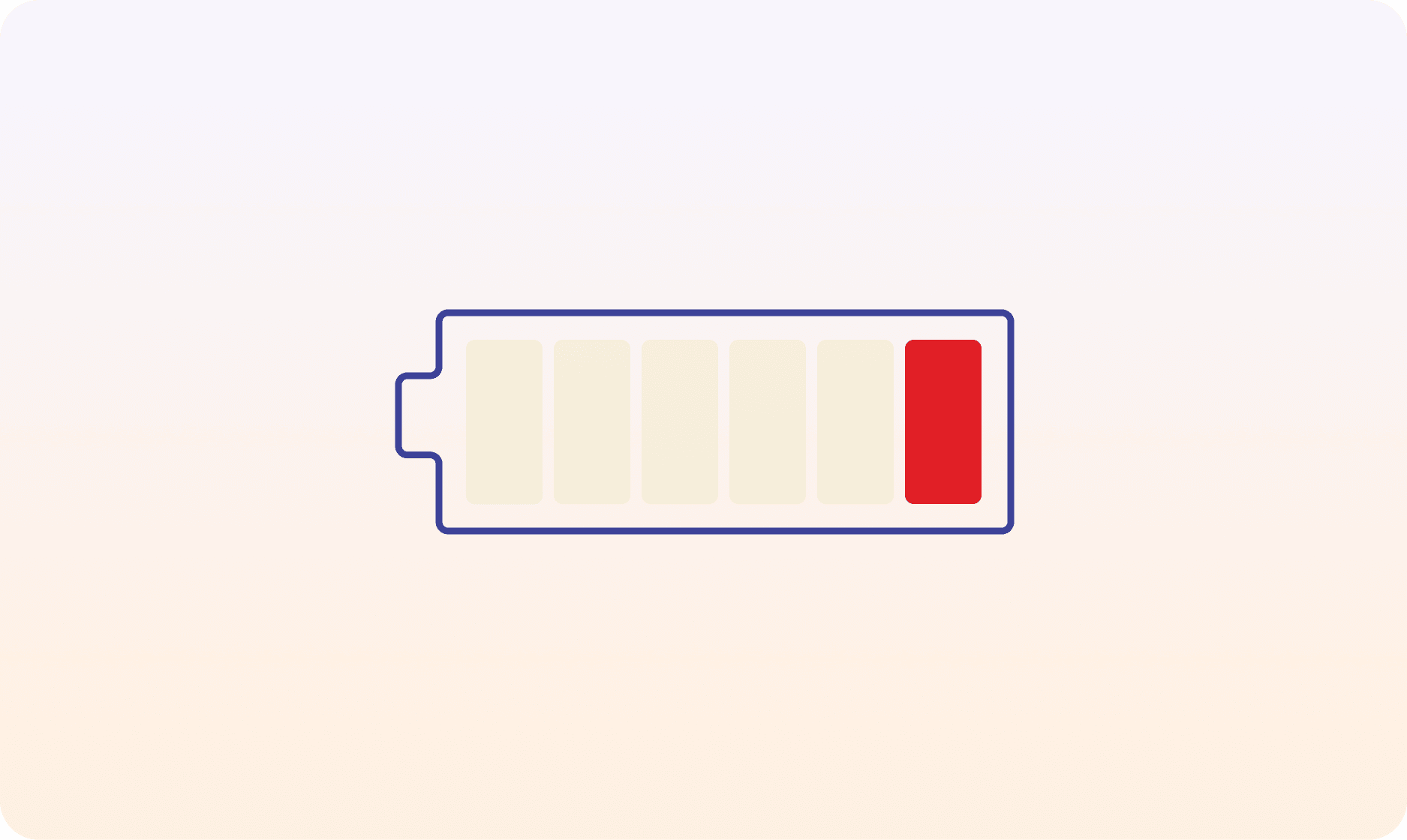Stress vs burnout: Here's how to know the difference
Feb 14, 2023

Imagine you're standing on a riverbank (keep reading, we're actually going somewhere with this), and you see a hippo charging towards you. Your brain flashes warning signs all bearing one message: Run. So you run, and find a safe house, and lock the door. When you step out, the hippo is gone. But if you couldn't find safety? You'd have to ignore your screaming muscles and keep running from the hippo. You might stop for a drink of water or to catch your breath, but you're still running.
Stress is quite like that first scenario: you see danger, your body goes into fight or flight response mode, and you get to safety. The threat has passed. Clearly, some stress can be good.
Burnout is like the second scenario: you're constantly running from your stressors with no resolution in sight. Even if your body is spent, you keep going. The water breaks (ahem, free yoga classes) might give you a brief sense of respite. But because nothing's being done about the root of the problem—that dang hippo—that initial self-preserving stress becomes chronic. (Told you we were going somewhere with this analogy!)
Stress is "too much", burnout is "not enough"
We see stress and burnout being used interchangeably, but there are some stark differences between them.
Prolonged feelings of unresolved stress spiral into burnout.
According to Emily Nagoski, PhD, and Amelia Nagoski, DMA, burnout happens when we don't close the stress cycle by moving from stress to calm.
We might deal with temporary stressors, but the feeling of being on high alert remains. This is why we often experience elevated blood pressure and indigestion during burnout — the body has slowed processes down to pump energy into fighting or fleeing. Since we never finish the cycle, it stays slowed down.
There's a fine line between stress and burnout. But we're here to help you identify that fine line, understand what you're going through, and take bold steps towards recovery!
Stress vs burnout: Engagement
When we're stressed, we'd most likely overexert during a short period, like when trying to meet a deadline or finish a long paper at the last minute. This over-engagement comes and goes in waves depending on workloads and priorities.
If we're burnt out, on the other hand, we tend to disengage. We might lose motivation and all sense of purpose. If we had a looming deadline, we wouldn't work harder — we'd probably not work at all.
Stress vs burnout: Emotions
When we're stressed, our emotions probably oscillate from shock, to dread, to frustration, to satisfaction. But we're feeling them — and that's the key differentiator.
That's because burnout leads to emotional blunting, where we feel numb almost all the time. According to a 2017 study, we might experience emotional exhaustion, feel cynical, or feel nothing at all.
Stress vs burnout: Activity levels
Stress almost always produces a sense of urgency and hyperactivity. This is because of our primal 'fight or flight' response system, which helps us get out of danger at a speed that we didn't know we possessed. Once we're out of the danger zone, though, this sense of urgency dissipates. The cycle closes.
Burnout is a whole different story, one of helplessness and hopelessness. To continue the analogy, we might not fight the danger or run from it — we just freeze and let dark thoughts consume us. Big yikes.
Stress vs burnout: Motivation
Ever heard someone talking about a last-minute burst of inspiration while under pressure? That's what stress can do: motivate us more than usual to fulfil a commitment and taste sweet, sweet satisfaction.
But burnout is usually characterised by a lack of motivation. We might find it challenging to focus on tasks, avoid making decisions, and feel generally dissatisfied with where we're at right now.
Stress vs burnout: Damage
Temporary stress can be good for you. Chronic stress? Not so much. The damage caused is often physical: headaches, upset stomachs, indigestion, back and shoulder aches, chest pain. Even here, we'd highly recommend treating the root of the symptom (the stressor), not just the symptom.
When emotional damage also occurs, we'd ring the warning bells. This often takes the shape of feelings of self-doubt and failure, negative outlooks, and a prevailing sense of detachment. These are signs that, on the spectrum, you might be closer to burnout than to stress.
Stress is a stop on the highway to burnout
Long story long: burnout and stress are not the same.
If you've realised you might actually be burnt out, it's not the end of the world. You can now look into how to recover from burnout and start practising some self-care strategies to prevent it in the future.
If your symptoms are interfering with work, we'd wholeheartedly recommend seeking advice from a mental health professional and letting your manager know, stat. This form of self-care is tough. But it has the best impact because you'll work on yourself with someone who has seen all this before and knows exactly what to do about it. At the same time, you're respecting your teammates' time and efforts and giving yourself much needed time off to re-centre.
But before all that, take some time to appreciate yourself for recognising that you're suffering and doing something about it. It's a hard first step, but you did it! ✨


